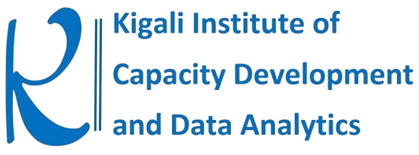Training Course on Financial Modelling Using Microsoft Excel
About the Course
This training workshop on financial modeling using Microsoft Excel will enable participants to acquire the practical knowledge required to build reliable financial models that can be applied to corporate planning and evaluation. Participants will learn best practice design concepts for designing adaptable models using a variety of financial modeling in Excel techniques and functions that are used when creating a complete financial model from scratch.
Target Participants
Training on Financial Modeling using Excel is aimed at corporate finance professionals, CFOs, financial controllers, finance managers, financial analysts and business development analysts.
Course Duration
5 Days
What you will learn
By the end of the course the learner should be able to:
- Prepare effective financial models utilizing powerful Excel functions
- Use core financial modeling techniques
- Create Scenario Analysis and Dash Boards
- Understand and apply Forecasting concepts and be able to track forecasting errors
- Forecast investments, and calculate valuations of projects and companies in an effective manner
- Develop comprehensive financial models to support investments decision
Course Outline
Introduction to Financial Modeling
- Financial modeling fundamentals
- Steps in model building
- Key concepts of financial modeling
Getting Acquainted with Excel
- Making Sense of the Different Versions of Excel
- Defining Modern Excel
- Recognizing the Dangers of Using Excel
- Looking at Alternatives and Supplements to Excel
Planning and Designing a Financial Model
- Identifying the problem that your financial model needs to solve
- Designing how the problem’s answer will look
- Gathering data to put in your model
- Documenting the limitations of your model
- Structuring your model: What goes where
- Defining inputs, calculations, and output blocks
- Determining your audience
Excel Tools and Techniques
- Cell referencing
- Naming ranges
- Linking in excel
- Using shortcuts
Excel Functions and Formulas in Finance
- The difference between a formula and a function
- Understanding to most important functions and formulas
- Finding the function and you need
- Advanced functions and formulas
Applying Scenarios to Financial Model
- The Differences between types of analysis
- Building Drop-Down scenarios
- Applying sensitivity analysis with data tables
- Using scenario manager to model loan calculations
Charting and Presenting Model Output
- Deciding which data to display
- Conveying your message by charting scenarios
- Deciding which type of chart to use
Building Financial Statements Model
- Entering assumptions
- Calculating revenue
- Calculating expenses
- Building the Income Statement
- Building the Cash Flow Statement
- Building the Balance Sheet
- Building scenarios
Building a Discounted Cash Flow Valuation
- Understanding how the discounted cash flow valuation works
- Step 1: calculating Free Cash Flow to Firm
- Step 2: calculating Weighted Average Cost of Capital
- Step 3: finding the Terminal Value
- Discounting Cash Flows and Valuation
Integrating Financial Statements Model
- Making a reusable budget model template
- Creating dynamic titles
- Calculating cash required for budgeted asset purchases
- Calculating budgeted depreciation
- Calculating the written-down value of assets for the balance sheet
Training Approach
This course is delivered by our seasoned trainers who have vast experience as expert professionals in the respective fields of practice. The course is taught through a mix of practical activities, theory, group works and case studies.
Training manuals and additional reference materials are provided to the participants.
Certification
Upon successful completion of this course, participants will be issued with a certificate.
Tailor-Made Course
We can also do this as a tailor-made course to meet organization-wide needs. Contact us to find out more info@trainingsinkigali.com
Payment
The training fee covers tuition fees, learning materials, and training venue. Accommodation and airport transfer are arranged for our participants upon request.
Payment should be sent to our bank account before start of training and proof of payment sent to info@trainingsinkigali.com
Physical trainings
Online trainings
Do you wish to partake this course through an online platform? KICDDA team of expert trainers are standby to support you in learning this course at your preferred pace and schedule. Our instructor-led online courses can also be tailored to accommodate participants specific needs. Request to take this course online by sending your request through:
Email: info@trainingsinkigali.com
Phone: +250 784 481 618 or +250 786 156 256
Other courses that you may like…
Sharing is caring:



